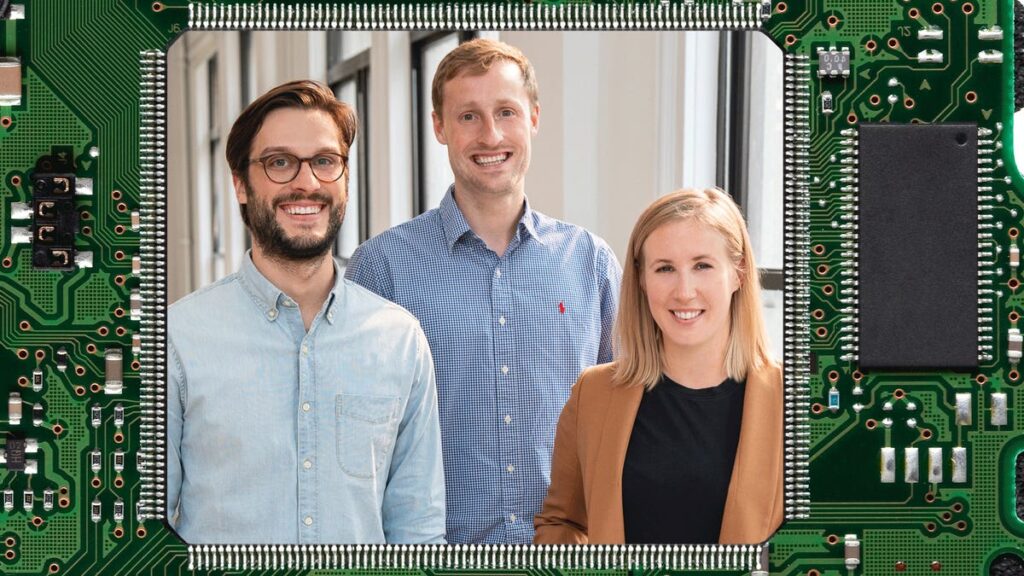Innovative firms serving the back office needs of Wall Street and other large enterprises continue to prosper, with promising new startups in a crucial niche–fraud prevention–sprouting.
W
ith stock and bond markets gradually recovering from 2022’s brutal losses, most of the leading fintechs serving institutional investors and capital markets firms have managed to keep growing. Fintech 50 mainstays Addepar, Trumid and Carta continue to add customers and product offerings and remain on this year’s list.
Meanwhile, two newcomers to the list reflect a segment that seems destined to keep growing no matter what the markets do: preventing and detecting fraud. The digitization of financial services has made it more convenient than ever for investors and depositors to manage their money, but it has also created a paradise for fraudsters and a growing need for enterprises to protect themselves and their customers.
Experian estimates the fraud prevention services market has grown to $15 billion a year and dozens of identity verification and fraud prevention startups are addressing this issue. Three standout up-and-comers in the field are on this year’s Fintech 50 list. Persona is appearing on the list for the second year in a row; it helps 1,000 customers, including Robinhood and Brex, implement customizable tools to verify user identities and monitor suspicious transactions.
Alloy and Sentilink are both newcomers to the list after recording strong growth in the last year. Alloy connects its 440 customers to 190 data sources in a single interface to assist with fraud prevention. Sentilink, which uses artificial intelligence to help predict whether a loan or account applicant is a fraudster, got its start tackling synthetic identity fraud—scamsters combine stolen Social Security numbers with fictitious names and real addresses to create phony identities and credit histories, which they use to obtain credit they don’t plan to repay (read more about Sentlink here).
One other newcomer to this list is Candidly, which helps employers (sometimes directly and sometimes by teaming up with financial service companies) administer a new and fast-growing category of employee benefits: help managing student debt. It tripled its customer count in 2022 to nearly 500 employers.
Here’s more on what each of the Wall Street and enterprise companies on the Fintech 50 are doing to help institutions manage, invest and protect their customers’ assets.
Addepar
Manages a cloud-based platform that helps private banks, RIAs and family offices track their clients’ portfolios across different currencies and asset classes, from stocks and bonds to venture capital investments and collectibles. Addepar’s technology can model asset allocations and rebalance portfolios. Its customers monitor $4 trillion in assets through the platform, up from $3.5 trillion a year ago, despite the stock market downturn. It opened offices in London and India in 2022 and now operates in 35 countries.
Headquarters: Mountain View, California.
Funding: $500 million from 8VC, D1 Capital Partners, WestCap Group and others.
Latest valuation: $2.17 billion.
Bona fides: Grew its customer base from 700 to 850 in 2022, added an average of $15 billion in client assets per week.
Cofounders: Board chairman Joe Lonsdale, 40, now the managing partner at venture firm 8VC; Jason Mirra, 34, former CTO.
CEO: Eric Poirier, 41, formerly at Palantir and Lehman Brothers.
Alloy
Connects banks and fintechs to fraud prevention tools from 190 data sources that verify customers’ identities during onboarding, monitor transactions to flag suspicious activity and make credit and compliance decisions. Its 440 customers include Carta, Brex, Stash and numerous regional banks and credit unions. Announced a global expansion to 40 countries in August 2022 and raised a Series C extension in September that upped its valuation to $1.55 billion.
Headquarters: New York, New York.
Funding: $210 million from Canapi Ventures, Bessemer Venture Partners, Lightspeed Venture Partners and others.
Latest valuation: $1.55 billion.
Bona fides: Customer count grew by 52% in 2022, now performing an average of 2 million daily transaction checks.
Cofounders: CEO Tommy Nicholas, 34; President Laura Spiekerman, 36, CTO Charles Hearn, 31; The trio worked together at Virginia-based mobile payment processing startup Knox Payments before starting Alloy in 2015.
Candidly
Its back-end software helps employers and financial service companies offer employer contributions to student loan payments and advice on managing student debt as worker benefits. Has established partnerships with Vanguard, Empower and PNC Bank and counts Salesforce as an end user. Each month, it sees several million dollars in employer contributions flow through its software. Candidly also offers a lending marketplace where employees can shop for student loans.
Headquarters: New York, New York.
Funding: $57 million from Altos Ventures, Cercano and Salesforce Ventures.
Latest valuation: $100 – $150 million.
Bona fides: 498 employer customers at the end of 2022, up from 167 the year prior.
Cofounders: CEO Laurel Taylor, 46, who worked in technology sales and at Google before starting Candidly in 2016; president Kevin Walker, 53.
Carta
Manages capital tables for 30,000 startups, tracking who owns shares and options and how ownership is diluted in new funding rounds. Also helps 5,000 venture firms with bookkeeping, providing performance data and documentation to limited partners and making risk assessments. Its CartaX platform offers a secondary market for employees of private companies to sell shares and has generated $13 billion in transaction volume since its 2021 launch.
Headquarters: San Francisco, California.
Funding: $1.1 billion from Andreessen Horowitz, Lightspeed Venture Partners, Tribe Capital and others.
Latest valuation: $7.4 billion.
Bona fides: Revenue grew 47% in 2022 to $272 million while Carta added 7,000 customers.
Founder and CEO: Henry Ward, 47, founded Carta as eShares in 2012.
Persona
Its identity verification products help businesses prevent fraud and ensure their users are who they say they are. It offers building blocks that allow its clients to customize onboarding processes to suit their needs and keep up with compliance requirements. Customers include Robinhood, Brex and Branch. In February, it launched a new product called Graph, which analyzes links between users’ accounts to spot suspicious activity and proactively block fraud.
Headquarters: San Francisco, California.
Funding: $218 million from Founders Fund, Index Ventures, Coatue Management and others.
Latest valuation: $1.5 billion.
Bona fides: Doubled its number of customers to 1,000 in 2022.
Cofounders: CEO Rick Song, 32, and CTO Charles Yeh, 30; Song is a former engineer at Square, while Yeh was technical lead at Dropbox.
SentiLink
Six-year-old startup that uses machine learning models and manual review to try to prevent financial fraud. When one of its financial institution customers receives a new loan application, SentiLink predicts the likelihood that the applicant is a fraudster. It got its start detecting synthetic fraud, where people combine stolen Social Security numbers with fictitious names and real addresses to create phony identities, build credit histories and then take out loans they don’t plan to repay. SentiLink has since expanded into identity fraud and first-party fraud, when consumers dispute charges for legitimate transactions. In 2022, it processed 323 million identity checks for customers, up from 148 million in 2021, and brought in an estimated $25 million in revenue.
Headquarters: San Francisco, California.
Funding: $84 million from Andreessen Horowitz, Felicis Ventures, Craft Ventures and others.
Latest valuation: $430 million, according to PitchBook.
Bona fides: More than 300 customers, including major fintechs like Plaid and Ramp, plus seven of the U.S.’ 15 largest banks–up from 100 customers at the end of 2021.
Cofounders: CEO Naftali Harris and COO Maxwell Blumenfeld, both 31, who met as undergrads at the University of Chicago and worked as data scientists at buy-now, pay-later company Affirm before starting SentiLink.
Trumid
Corporate debt trading platform that executes high-stakes trades across investment grade, high yield, distressed and emerging market debt asset classes for users at 730 client financial institutions, including JPMorgan, Citi and Goldman Sachs. In February 2023 it launched its portfolio trading protocol, allowing users to trade portfolios of bonds in addition to single securities, integrated with its dealer-to-client attributed trading protocol which facilitates negotiations. Traders can also make transactions anonymously.
Headquarters: New York, New York.
Funding: $650 million from Point Break, Motive, Dragoneer and others.
Latest valuation: $2.4 billion.
Bona fides: Average daily trading volume in April was $3.1 billion, up 54% year over year.
Founder: Co-CEO Ronnie Mateo, 49, former credit trader at Trinity Brokers, recruited Lehman Brothers and Barclays Capital veteran Mike Sobel, 43, to be president and now co-CEO.
MORE FROM FORBES
Read the full article here













